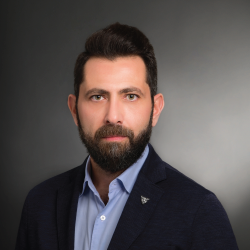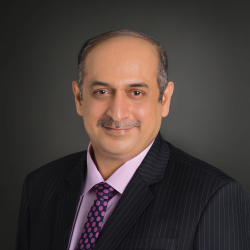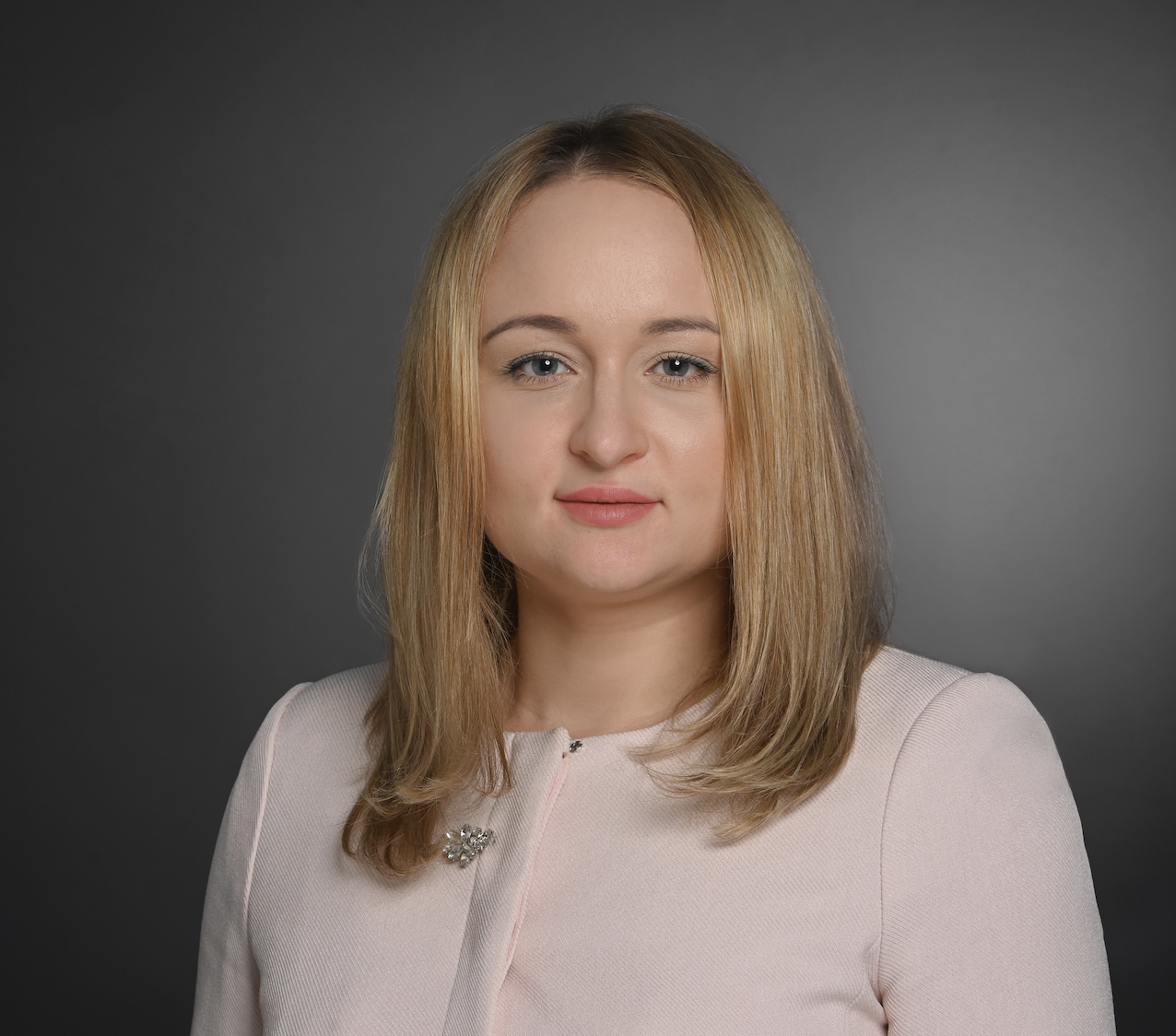Bachelor of Science in Finance
A finance degree involves the management, creation, and study of money, banking, investments, assets, and liabilities.
Program Overview
The Bachelor of Science in Finance degree prepares students for management positions in financial, commercial, industrial, and governmental organizations. Students are taught the principles of financial decision making and build an understanding of the economic, legal, and financial environment in which they will operate. Career options exist in government, industry, service, and not-for-profit organizations.
Students become familiar with financial systems, which include the public, private and government spaces. They also study financial instruments related to countless assets and liabilities. Specifically, Finance majors study cash flow, asset and risk management, capital markets, portfolio theory, international finance and forecasting and budgeting. Students become experts at decision making – one of the main differences between Finance and Accounting.
As a Finance major, students go beyond making a budget; they learn how to analyze a budget to determine opportunities to save or identify the best investment option. Students explore different career options in the Finance program based on their interest in decision-making – they can choose to pursue studies that support a managerial position as a Financial Analyst or they may be interested in a path that leads them to a career in Financial Consulting.
Finance students develop their ability to manage corporate finances and enhance their leadership potential. At RIT Dubai students learn how to solve problems. In addition, and more importantly, they learn how to prevent problems through in-depth analysis, contingency planning and effective decision making.
Mission Statement
The Finance program prepares graduates to lead businesses and financial institutions in an ever-changing financial and technological environment. Through high quality teaching that enhances critical thinking and decision-making skills, RIT Dubai Finance graduates will have the expertise in risk management, valuation of assets and investment, financial markets and institutions and will be the drivers of value creation in Dubai, the UAE, and the world.
Business and Management Program Goals
These are the program goals and associated program outcomes for the Business Core which are common to all business and management students:
1. Analytical and Critical Skills: Analyze and evaluate major business issues to make and communicate effective decisions. Upon graduation, students will be able to:
- Analyze a business problem using one or more theory-based frameworks.
- Interpret data using quantitative methods.
- Communicate a solution to a business problem and the reasoning behind it.
- For a substantive ethical business issue, propose a sustainable course of action that considers the interest of primary stakeholders.
2. Applied Focus: Learn course concepts and theories through application and practice. Students will be able to:
- Apply course concepts effectively in a real organizational setting.
- Successfully complete hands-on business-related projects.
- Work effectively with others and in teams.
- Demonstrate how global cultures and institutions impact businesses.
3. Creative Problem Solving: Generate a creative solution to a business problem or opportunity through the application of design thinking. Students will be able to:
- Demonstrate a process for generating a creative solution.
- Demonstrate the use of design thinking to arrive at a creative solution.
- Evaluate alternative solutions.
4. Technology: Apply business technology and explain its implications. Students will be able to:
- Explain the impact of technology on business operations.
- Apply business technology to solve a problem.
- Develop a strategy that includes technological innovation.
Program-Specific Goals
The following goals are unique to Finance:
5. Cash Flows, Risk and Value - Possess knowledge concerning cash flow, risk and value in finance in various contexts and be able to apply financial models concerning them. Students will be able to:
- Compute risk measures for financial securities (e.g., bonds and stocks)
- Conduct analysis on risk-related issues (e.g., compute risk-adjusted performance measures
- Evaluate financial securities using cash flow-based models
6. Use of Financial Technology in Analyzing Data: Students demonstrate the ability to use Excel or other contemporary software applications to analyze given data sets. Students will be able to:
- Apply technology in analyzing financial statements and in developing projections and forecasts.
- Use technology to communicate the results of the analysis so they may be used in decision-making.
Program Learning Outcomes
- Compute risk measures for financial securities (e.g., bonds and stocks)
- Conduct analysis on risk-related issues (e.g., compute risk-adjusted performance measures
- Evaluate financial securities using cash flow-based models
- Apply technology in analyzing financial statements and in developing projections and forecasts
- Use technology to communicate results of analysis so they may be used in decision-making.
Career opportunities for graduates of the Finance program exist across government, industry, service, and not-for-profit sectors. Throughout the program you will encounter different career options based on your interest in decision-making – you can choose to pursue studies that support a managerial position as a Financial Analyst or you may be interested in a path that leads to a career in Financial Consulting.
Typical Course Sequence
|
Year One |
||
| Course Code | Course Title | Credit Hours |
|
MGMT - 101 |
Introduction to Business Communication, Planning and Analysis |
3 |
|
ECON - 101 |
General Education - Global Perspective A: Principles of Microeconomics |
3 |
|
COMM - 253 |
Communication |
3 |
|
STAT - 145,146 |
General Education - Mathematical Perspective A: Introduction to Statistics I, II |
7 |
|
MGMT - 102 |
Business 2: Business Planning and Professional Development |
1 |
|
UWRT - 150 |
General Education - First Year Writing: FYW: Writing Seminar (WI) |
3 |
|
MGIS - 130 |
Information Systems and Technology |
3 |
|
ACCT - 110 |
Financial Accounting |
3 |
|
BANA - 255 |
Data Literacy, Analytics and Decision Making |
3 |
|
|
Foundation 2: Islamic Culture Course |
3 |
|
YOPS - 10 |
RIT 365: RIT Connections |
0 |
|
Year Two |
||
|
ACCT - 210 |
Management Accounting |
3 |
|
ECON - 201 |
Principles of Macroeconomics |
3 |
|
MKTG - 230 |
Principles of Marketing |
3 |
|
FINC - 220 |
Financial Management I |
3 |
|
|
General Education- Artistic Perspective General Education- Scientific Principles Perspectives |
6 |
|
FINC - 352 |
Financial Management II |
3 |
|
MGMT - 215 |
Organizational Behavior |
3 |
|
INTB - 225 |
Global Business Environment |
3 |
|
MATH - 161 |
Applied Calculus |
4 |
| SCBI - 035 |
Careers in Business |
0 |
|
Year Three |
||
| MGMT - 340 | General Education – Ethical Perspective A: Business Ethics and Corporate Social Responsibility |
3 |
| FINC - 362 | Intermediate Investments |
3 |
| General Education- Immersion 1, 2, 3 |
9 |
|
| Open Elective |
3 |
|
| General Education -Social Perspective General Education - Natural Science Inquiry Perspective |
6 |
|
| Finance Elective |
3 |
|
|
FINC - 499 |
Finance Co-op |
3 |
|
Year Four |
||
|
|
Finance Elective |
3 |
|
|
Open Elective |
6 |
|
DECS - 310 |
Operations Management |
3 |
|
|
General Education Elective |
9 |
|
MGMT - 560 |
Strategy Management |
3 |
|
FINC - 420 |
Finance Elective |
3 |
|
FINC - 460 |
Financial Analysis and Modeling |
3 |
|
Total Semester Credit Hours - 123 |
||
To graduate, students need to complete all the requirements as listed in the curriculum. Click here for the graduation policy.
Click here to download undergraduate catalogue for complete descriptions of each course within the program






